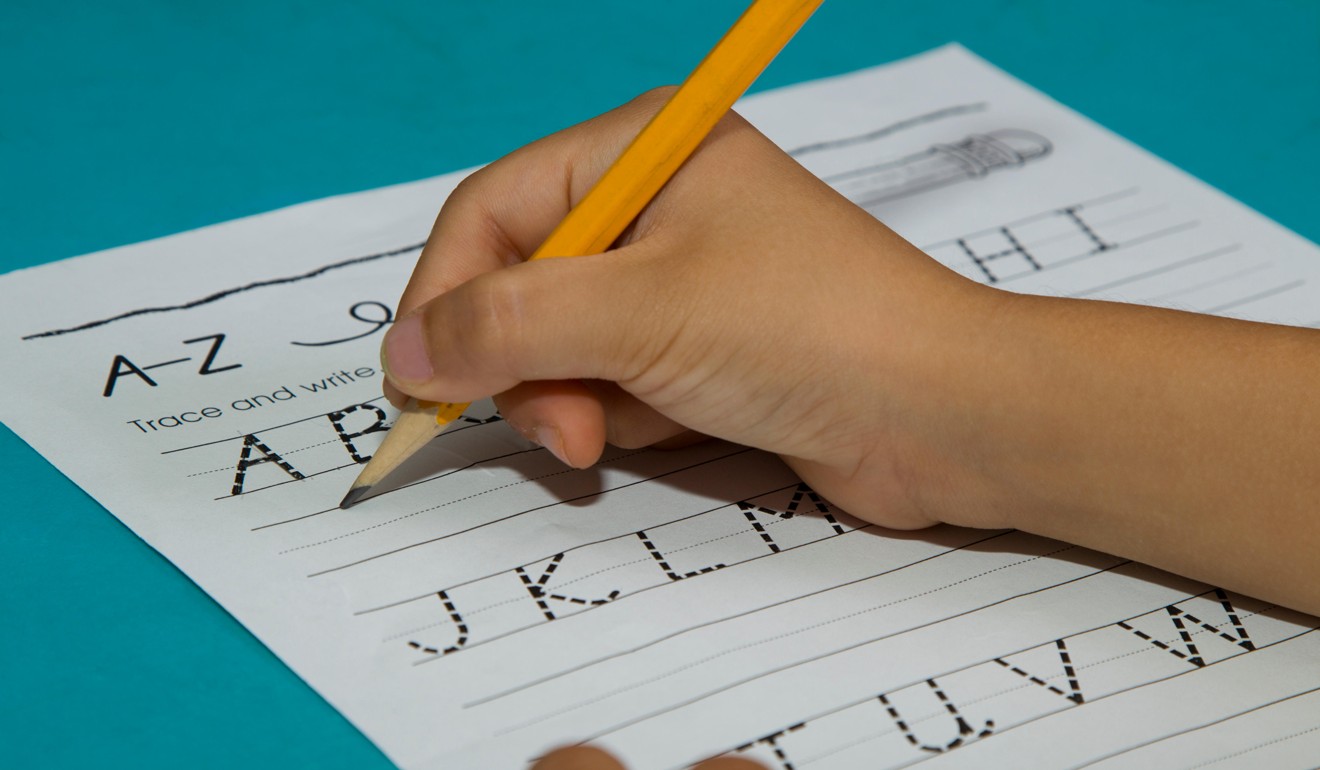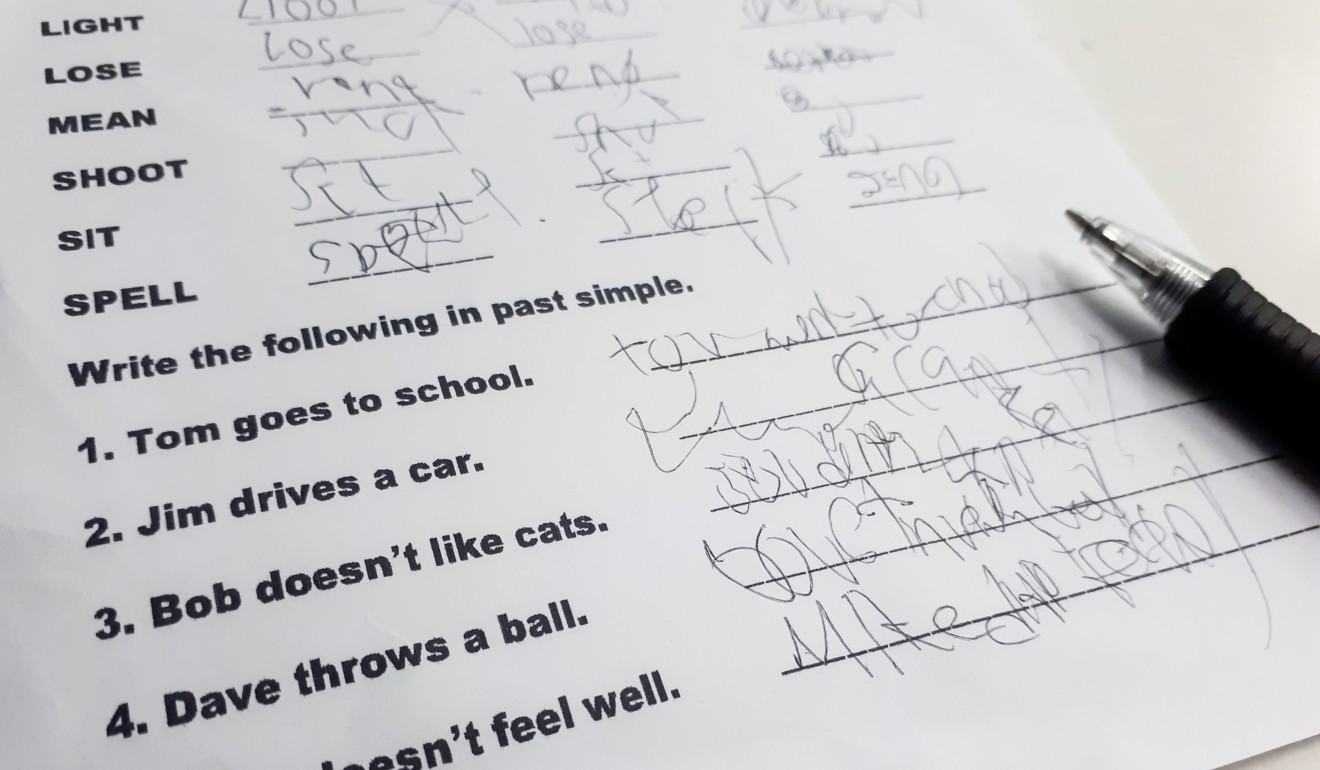
Why can’t my slow writing son use a laptop in exams? asks a Hong Kong parent
- Universities are starting to trial e-exams, but some educationalists still believe handwriting is best
- Others worry that using a laptop or a spellcheck function would be cheating
My son is about to take his first tests at high school, and I’m concerned because his handwriting is very slow and laborious. He always underachieves in tests because he can’t get his knowledge down on paper under time pressure. Isn’t it time that children at least have the option of doing tests and exams on a computer? After all, this is the way he does most of his other work.
An increasing number of universities are trialling e-exams and the first results are encouraging. If successful, this is bound to filter down to secondary schools and could soon presage the end of handwritten assessments.
Sports day: why doesn’t my child’s school take it seriously?
Many of us will remember our hands – as well as our brains – aching at the end of an important exam. As you point out, surely an exam should be a test of knowledge and understanding rather than a measure of how fast a person can write.
Universities are aiming to reduce the use of paper and make exam answers easier to mark. Handwritten papers can be a struggle for examiners to read. Even for students who have neat, fluent writing, it is often a challenge to produce legible script when writing under extreme time pressure. For those pupils, like your son, who struggle to write quickly under normal circumstances this can be exasperating. Left-handers can also suffer as they tend to have a more awkward pen grip, which obscures their writing.

All too often in the past, having a beautiful script was given a higher priority by some teachers and assessors than the quality or content of a piece of work. Added to that, studies show that teachers respond more positively to well presented work, which could give a small – some would argue unfair – advantage in exam grading.
There are many glitches that still need ironing out before e-exams become common practice. Paramount is developing foolproof methods to stamp out cheating. If pupils use their own laptops, this is even more difficult to supervise, as well as generating other potential problems such as students arriving at exams with uncharged laptops.
Also there are issues around differing policies used by schools and further education establishments for spell checking. Some educators believe that spell checking should not be allowed in exams while others take the view that it is now daily practice and exams are not set to check the level of spelling skills. However, poor grammar that affects meaning and makes answers unclear would have to be taken into account when grading.

There is a real concern among educationalists that e-exams could lead to the end of handwriting altogether. Research clearly shows that writing by hand aids the process of learning and helps the brain to absorb information. It can also encourage creativity and imagination, allowing pupils to record ideas all over a piece of paper, adding quick notes and rough sketches, and therefore not restricting writing to the more linear template of word-processing software. For young pupils, the physical process of actually writing letters helps them to learn and remember the alphabet, while developing cursive handwriting aids mental processing and spelling skills.
Furthermore, the frequent manipulation of a writing tool carries many advantages, including the development of hand-eye coordination and fine motor control.
The deterioration of handwriting skills has been linked to a decrease in dexterity needed for all sorts of common everyday tasks as well as certain jobs. A top surgeon recently commented that spending too much time on computers has lead to trainee doctors lacking in the necessary dexterity to sew up patients to a high standard.
Most Hong Kong international schools require pupils to provide their own laptops when they enter Year 7 because most schoolwork is now carried out using a word processor. This can mean that some students flounder during exams because they don’t have the capacity to legibly write large amounts of text at speed.

Even though your son does most of his work on the computer it is important to encourage him to continue to hand write. His writing hand should be relaxed and the paper should be steadied with his other hand and slightly tilted. The more he practises the more he will develop a smooth, cursive style of writing that will become a comfortable habit. An incorrect pen grip can make writing at speed extremely difficult and in your son’s case this may have been overlooked in the early years. Unfortunately, once bad habits are ingrained they are very hard, but not impossible, to change.
Travelling with kids: how to ensure your children become fully immersed in new cultures on holiday
Problems with writing, processing information or similar difficulties that have been formally assessed can lead to a special dispensation for certain students by, for example, allowing them to use computers in exams. Discuss this with your son’s teachers, as it could be the way forward for him, making all the difference to his confidence and perhaps future results.
Many parents and teachers would argue that more screen time and a total dependency on technology is the last thing young people need. So surely we should encourage students to be multi-skilled and continue to carry out certain tasks best suited to traditional writing methods such as brainstorming ideas, writing personal cards and compiling lists.
However, it is hard to refute that technical skills reflect the world of work and leisure outside the school environment, making it highly likely that computer written exams would give the modern student a better chance to impart information quickly and accurately, without disadvantaging pupils like your son.
Julie McGuire is a former Hong Kong primary school teacher
